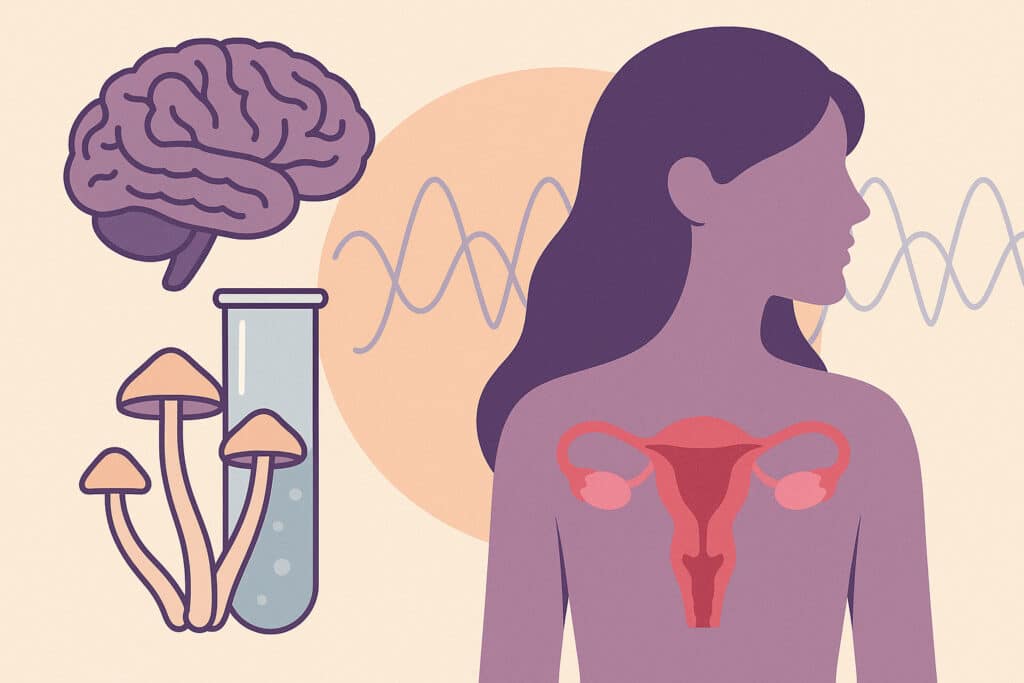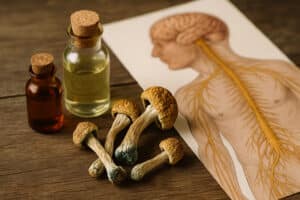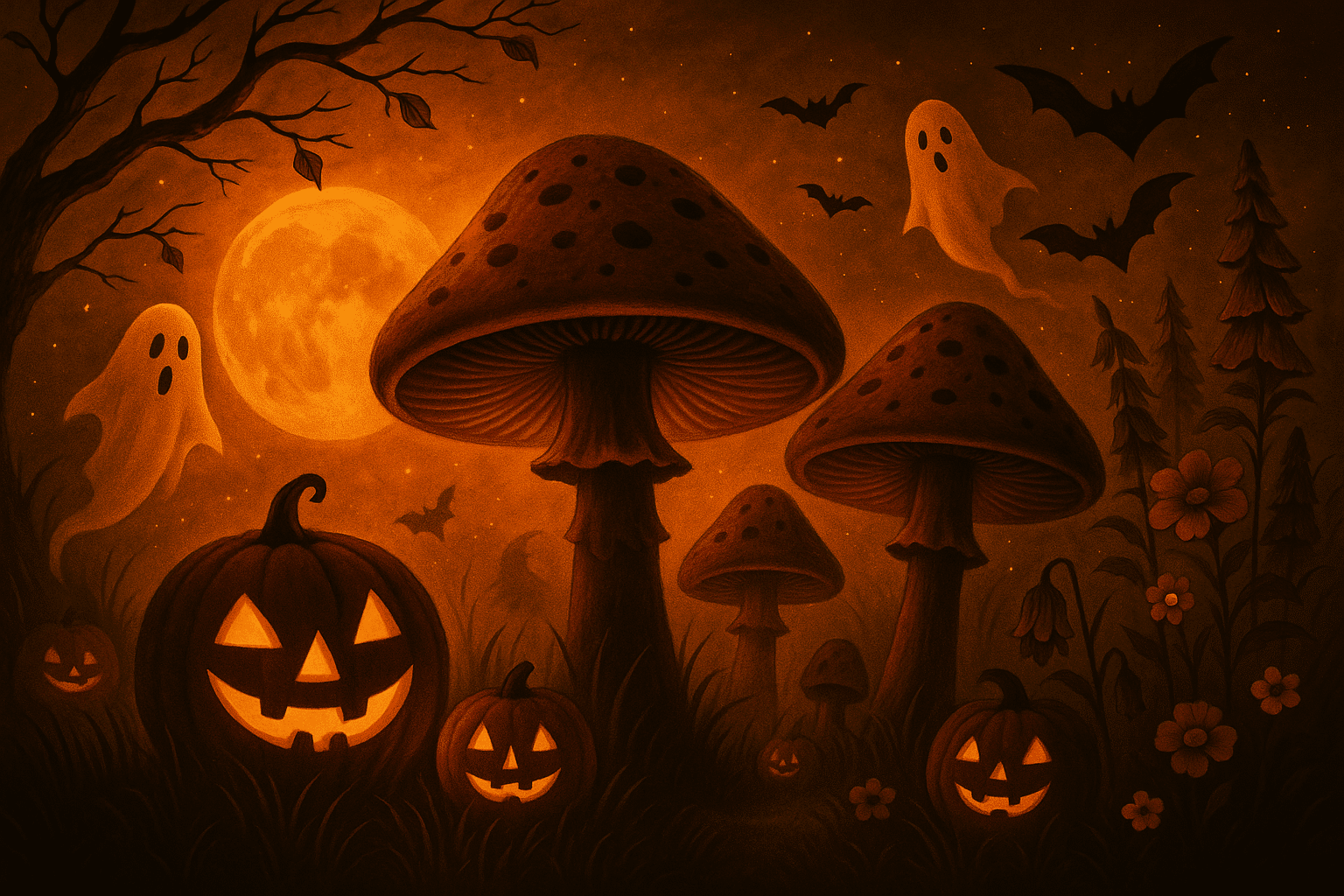The hormonal cycle of women plays a significant role in how we feel. An increasingly common question is whether microdosing can play a supportive role in this. However, scientific research on this topic is still in its infancy. In this blog, we explore what is currently known from theory and early research findings. The information is intended as background – not as medical advice or a recommendation for use.
This blog helps you better understand what is and isn’t known about microdosing and hormonal balance, so you can make more informed choices and better recognize signals from your body.
The hormone cycle of women
Disclaimer: This blog provides information about microdosing and hormonal complaints and is not intended as medical advice. Always consult a doctor or specialist for serious or persistent complaints.
Hormonal complaints are common, ranging from menstrual and menopausal issues to pregnancy-related complaints. Conventional medication is often used for this, such as the pill, an IUD, or Hormone Replacement Therapy. These are interventions in the hormonal system that are effective for many women, but not the best option for everyone.
Lifestyle plays an important role in hormonal balance. Factors such as sleep, nutrition, exercise, and stress affect the hormonal system. Therefore, it may be worthwhile to optimize these first. Microdosing is sometimes mentioned as a possible additional support, although this is currently mainly theoretical.
The Role of Microdosing in the Hormonal Cycle
Even with a healthy lifestyle, hormonal complaints can persist. Stress is an important factor in this. The HPA axis (hypothalamic-pituitary-adrenal axis) plays a central role in this: it regulates the stress response and influences hormonal balance. Chronic activation of this axis due to stress can contribute to hormonal dysregulation.
There is currently limited data on the impact of microdosing on this system. A case series, published in Journal of Psychoactive Drugs (García-Romeu & Suro, 2023), describes possible changes in the menstrual cycle after the use of classic psychedelics. The researchers suggest that there is a theoretical overlap between the HPA axis and the HPG axis (which regulates menstruation), with psychedelics potentially affecting both systems. It is important to emphasize that these findings are not based on controlled clinical studies.
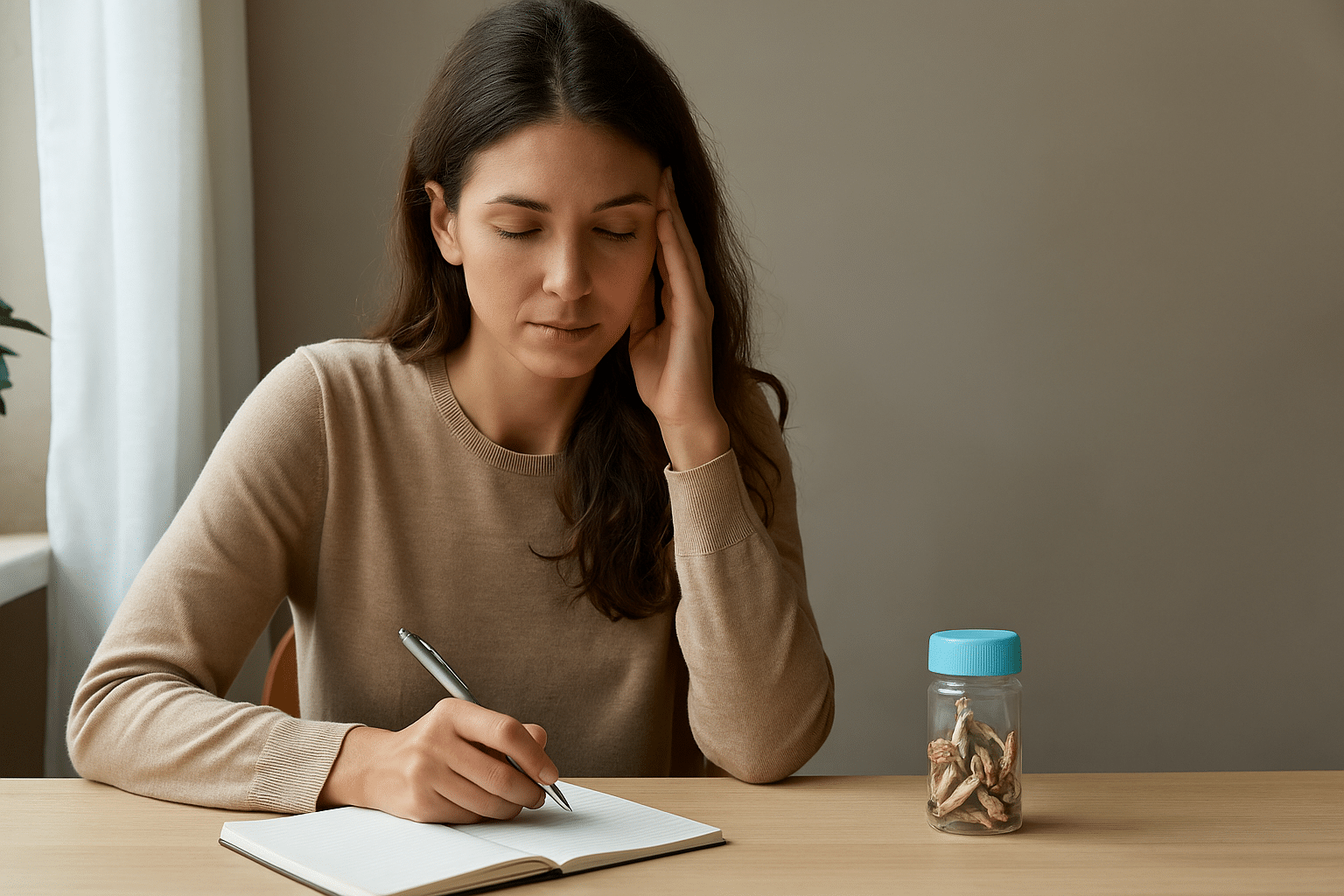
Microdosing and PMDD
PMDD (PreMenstrual Dysphoric Disorder) is a severe form of premenstrual syndrome that affects about 8% of women. Possible symptoms include cramps, depression, mood swings, and brain fog. The cause is not fully known, but the serotonergic system is thought to play a role.
Because psychedelics like psilocybin affect serotonin receptors, it is being investigated whether they could theoretically influence PMDD. The amygdala, involved in emotional processing, also responds more sensitively to negative stimuli in people with PMDD. Studies with full doses of psilocybin suggest a dampening effect on this amygdala response (Aday et al., 2021), but no research has yet been conducted on microdosing specifically for PMDD.
Microdosing for menopausal complaints
During menopause, women can experience various complaints such as hot flashes, mood swings, and sleep problems. Psilocybin is being investigated in clinical settings as a possible support for depression. Studies from Johns Hopkins Medicine have shown that full doses combined with therapy can provide long-term relief from depressive symptoms (Davis et al., 2021).
Although microdosing is not a full dose, it is assumed that even small amounts can affect mood and cognitive functions. However, this is still insufficiently researched, and there are no official recommendations for use in menopausal complaints.
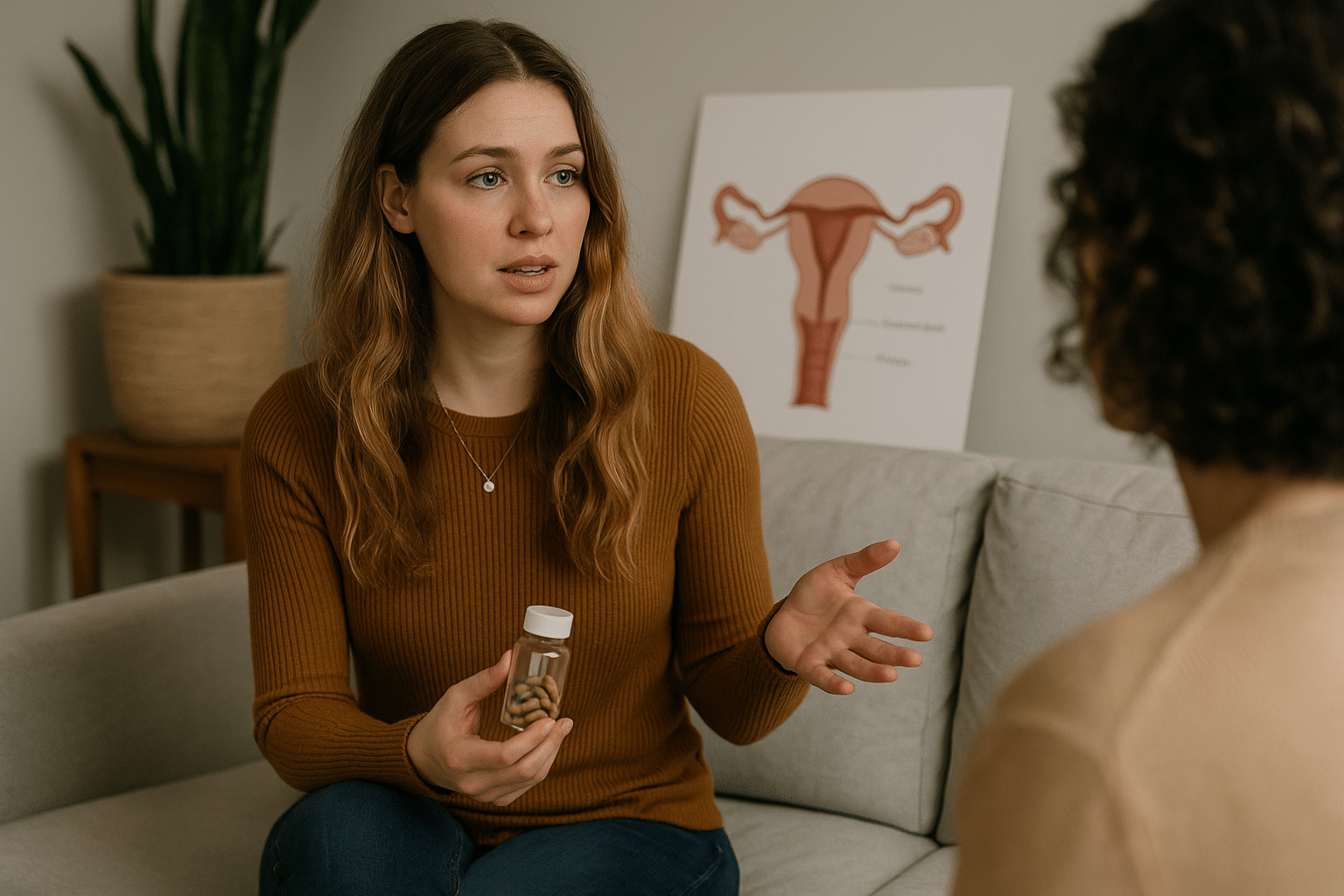
Microdosing as a solution for hormonal complaints?
There is still much uncertainty about the relationship between psilocybin, microdosing, and the hormonal system. While some theories and observations point to possible interactions, there is currently no solid scientific evidence that microdosing is effective or safe as a treatment for hormonal complaints. More clinical research is necessary.
Do you regularly suffer from hormonal complaints? Always contact a doctor to discuss possible causes and find an appropriate approach. Self-experimentation with microdosing is discouraged without professional medical supervision.
Author’s note: This blog is based on publicly available scientific literature. The content is intended to be informative and does not replace professional medical advice. Always consult a healthcare professional for health complaints.
Resources
- Aday, J. S., et al. (2021). The effects of tryptamine psychedelics in the brain: A meta-analysis of functional and molecular imaging studies. Frontiers in Pharmacology, 12, 739053. https://doi.org/10.3389/fphar.2021.739053
- Davis, A. K., et al. (2021). Effects of psilocybin-assisted therapy on major depressive disorder: A randomized clinical trial. JAMA Psychiatry, 78(5), 481–489. https://doi.org/10.1001/jamapsychiatry.2020.3285
Read More
- PubMed – Scientific studies on psychedelics and hormones
- Frontiers in Pharmacology – Current research articles
- Harvard Health Publishing – The stress response and the HPA axis
- Trimbos Institute – Information about truffles and psilocybin
Legal Note
In the Netherlands, microdosing with psilocybin is only allowed with truffles. Use is at your own responsibility. Make sure you are well-informed about the legal context and possible risks before starting.

